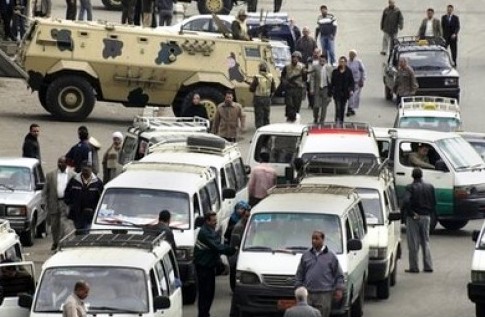Massive people power succeeded in toppling Egyptian President Hosni Mubarak after nearly 30 years of his autocratic rule.
Mubarak stepped down as the president handing over the power to the army after 18 days of non-stop protests in Tahrir Square or the Liberation Square.
The focus now turns to the military leaders who take power but have little experience in governing.
Mubarak was left with no choice but bowing to the escalating pressure from the military and protesters demanding that he go.
This historical revolution was a pivotal moment for Egypt.
In recent weeks, there have been wide-spread protests in Tunisia, Yemen, Jordan, Egypt and other Middle East countries.
These protests were bound to happen sooner or later.
Decades of authoritarian rule have left many countries in the Middle East unprepared for moving forward to peace, stability and true democracy.
Many of these countries have been yearning for greater democracy and freedom in the region.
No Middle East country is immune from such protests.
Don’t be surprised if such protests spread to Iran, which is not a typical Middle Eastern country.
We are bound to see and hear of protests in other countries like Algeria, Libya and Syria.
Nowhere were protests so intense and violent than in Egypt where the 82-year-old Hosni Mubarak, has been the supreme leader of this huge country of 85 million people since 1981.
He has survived six assassination attempts since he came to power after the former president Anwar Sadat was assassinated after signing a peace deal with Israel in 1979.
During Mubarak’s 30-year iron rule, he has fought no wars with any neighbouring countries including Israel.
Yes, he did succeed in bringing political stability in the troubled region.
But, he failed in allowing basic rights to democracy and freedom and had lost contact with the people.
Vice president Omar Suleiman said a military council would run the affairs of the Arab world’s most populous nation.
It is not clear what role Suleiman will play.
A free and fair presidential election has been promised for September.
Hundreds of thousands broke down in tears, and celebrated and hugged each other chanting the people have brought down the regime.
The mass protest was a momentous victory for the people power and is sure to rock autocrats throughout the Arab world and beyond.
Although Mubarak is gone, he will not be forgotten.
It is widely believed the president and his family has amassed huge fortune believed to be anywhere between $10 billion and $50 billion.
The money has been deposited in foreign banks.
The Egyptians say this money belongs to them and the country and must be returned to the rightful owners.
This home grown and home bred revolution is not over yet.
Mubarak has also been a strong ally of the West in the war on terrorism.
Egypt has become the centre of attraction because Western nations are worried about the future of Egypt and the Middle East under a new, relatively unknown leader and where he would take this huge country.
Many are rightly worried about what would happen in Egypt if Islamic radicals take over.
The protests in Egypt started on Jan. 25 and spread across the country.
Since the daily mass protests in Egypt, fears have been expressed that the rise of Islamist power in Cairo could threaten Egypt’s 30-year-old peace deal with Israel and tip the regional balance of power.
The opposition has been calling for the constitution to be re-written to allow free and fair presidential elections, a limit on presidential terms, the dissolution of parliament, the release of political detainees and lifting of emergency law.
In recent weeks, thousands and thousands of protestors had flooded the streets saying they won’t rest until Mubarak is gone.
The Egyptians want true democracy, free speech and most of all better economic conditions.
They say they are tired of constant and severe food price inflation and unacceptable high level of unemployment.
Mubarak had been grooming his son Gamal to take over from his aging father.
Te Islamist group the Muslim Brotherhood has been outlawed in Egypt.
Some officials say the protests were not started by the Muslim Brotherhood.
The Muslim Brotherhood, the country’s best organized opposition group despite a half century of illegality, has moved to reassure observers who fear an Islamist take over.
A spokesman from the Muslim Brotherhood has said they would not field a presidential candidate when an election is eventually called.
They say youngsters used the Internet, the Face Book and other communication tools to get the crowd in the streets to demand an end to the Mubarak rule.
What Egyptians need is security, stability, more freedom and rule of law.
They want the rights of everyone protects, including the minorities.
When the riots began, Mubarak told an American television station he was “fed up” with power, and that he will stay on for a little longer to assure a peaceful transition.
“If I resign today, there will be chaos.”
The Egyptians did not trust Mubarak.
Mubarak’s last speech to the nation was a fiasco and poorly delivered.
Even the person who translated the speech was confused.
It is obvious he had agreed to go but later changed his mind.
All the foreign leaders including US President Barack Obama were making comments as if Mubarak had gone.
The world’s eyes will be on Egypt for many more days.
Will this Egypt be very different from what we had?
This remains to be seen.



